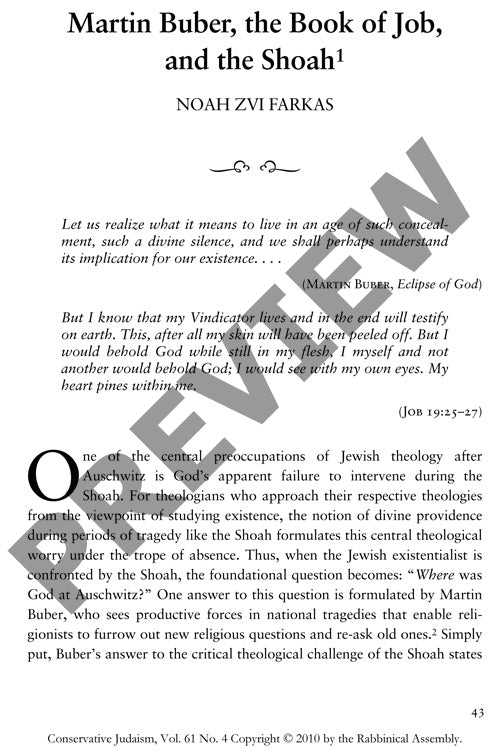Martin Buber the Book of Job and the Sho
Couldn't load pickup availability
During the Holocaust, theologian Martin Buber grappled with a searing question: How could God seem absent during humanity's darkest hour? His answer emerged through a radical reinterpretation of the Book of Job, positioning divine hiddenness not as abandonment but as a prelude to renewed relation. Through textual analysis of Buber's writings from 1941-1952, including "The Prophetic Faith" and "Eclipse of God," a striking evolution appears in his existentialist theodicy from pre-war exegesis to post-Holocaust theology. Buber identifies four theological responses to suffering in Job, ultimately emphasizing Job's experience of divine absence followed by God's return in relation. He applies this paradigm to Holocaust survivors, casting them as witnesses awaiting God's re-emergence from eclipse. Yet Buber's theodicy contains fundamental philosophical contradictions that undermine his central "I-Thou" construct. Divine hiddenness challenges the accessibility of the eternal "Thou," potentially collapsing all relational experiences into mere objectification. Moreover, Buber's separation of God from moral categories renders divine transcendence incompatible with human concepts of justice. These philosophical incoherencies, combined with the continued reality of genocide and human suffering, render Buber's existentialist theodicy inadequate for post-Holocaust Jewish theology, necessitating alternative theological approaches to moral tragedy and divine presence.

More Information
-
Physical Description
-
Publication Information
Published 2010
ISBN
-
Publication Credits
Noah Farkas

